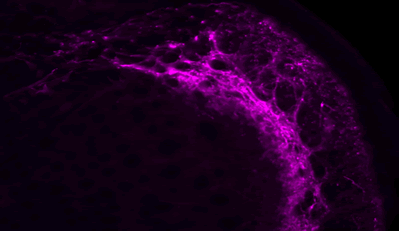Our research is concerned broadly with the behavioural and brain mechanisms of simple forms of learning and motivation. We focus on Pavlovian and instrumental conditioning preparations and couple these behavioural approaches with a variety of techniques from neuroscience including immunohistochemistry, neuronal tract-tracing, microdialysis, site-specific microinjections, neurotoxic lesions, and immunolesioning. Some specific projects underway in my laboratory are:
Learning about predictive relations between events is essential for adaptive behaviour. It allows us and other animals to use past events to predict the future and to adjust our behaviour accordingly. Predictive learning depends on what is already known about the events in the relation: if an outcome is unexpected, we learn about cues that predict its occurrence; if the outcome is expected, information provided by other cues about its occurrence is redundant and our learning about them is impaired. Fear learning allows anticipation of sources of danger in the environment. It guides attention away from poorer predictors towards better predictors of danger and elicits defensive behavior appropriate to these threats. This project identifies how the brain predicts danger. It does so in terms of the nature of predictive fear learning, the consequences of this learning for how organisms attend to and learn about dangerous events, and in terms of neural mechanisms.
Drug addiction is a major health and societal problem in Australia. It poses significant burdens on individual users, their families, and communities. Prolonged drug use is associated with increased rates of physical health problems including cardiovascular disease, liver disease, and HIV infection; mental health problems including depression and anxiety; and criminal involvement. Considerable progress has been made in understanding the behavioural and brain processes for drug addiction. However, many aspects of drug addiction remain poorly understood. Chief among these are the mechanisms of return or relapse to drug taking after periods of abstinence. Drug addiction, regardless of the drug abused, is a chronically relapsing condition. Most contemporary research has focused on how discrete “triggers” (e.g., stress; negative emotions; drug associated stimuli) cause relapse. However, relapse is not an inevitable consequence of exposure to such “triggers”. Context is an important component of relapse. There are “Achilles’ Heel” situations where relapse is more likely. This project studies how contexts regulate reward seeking in terms of behavioural processes and neural mechanisms.
|


